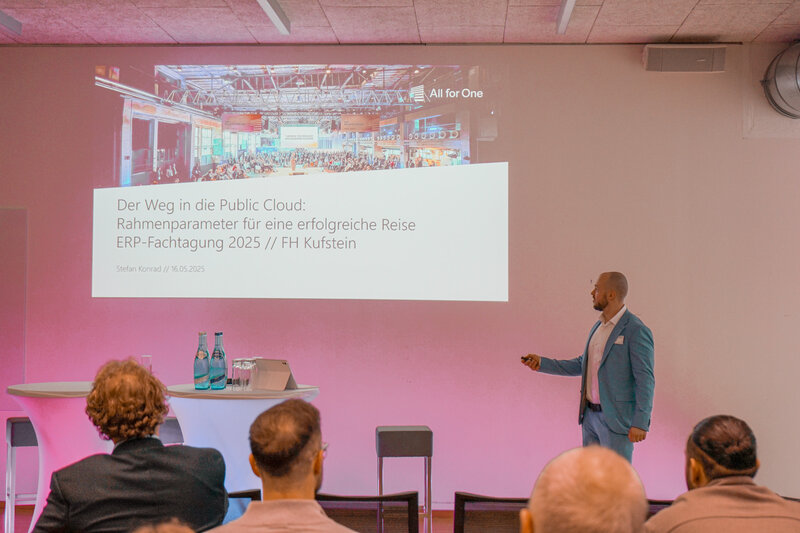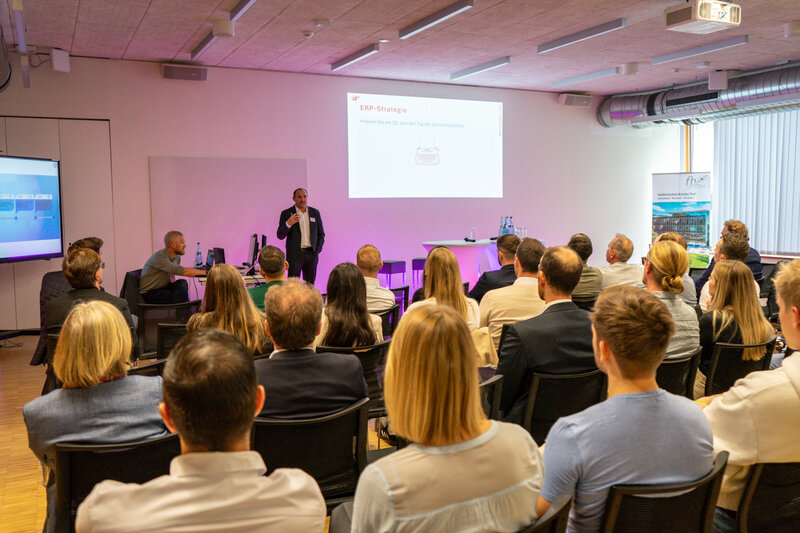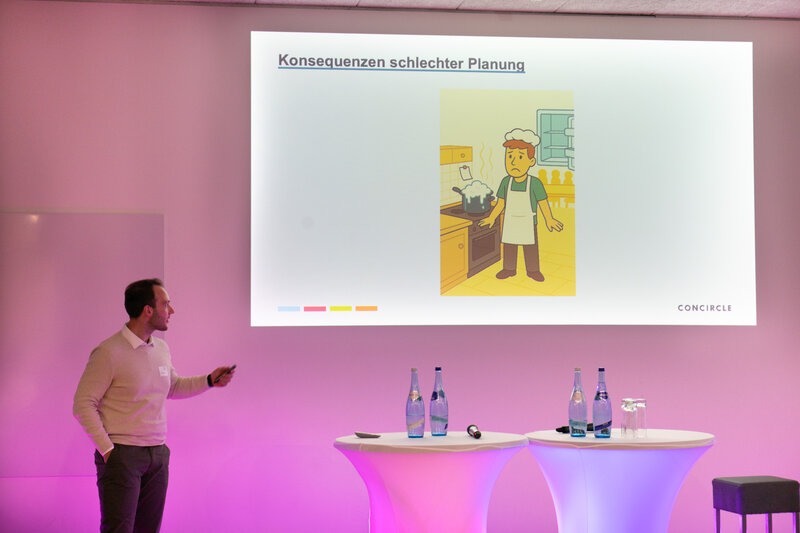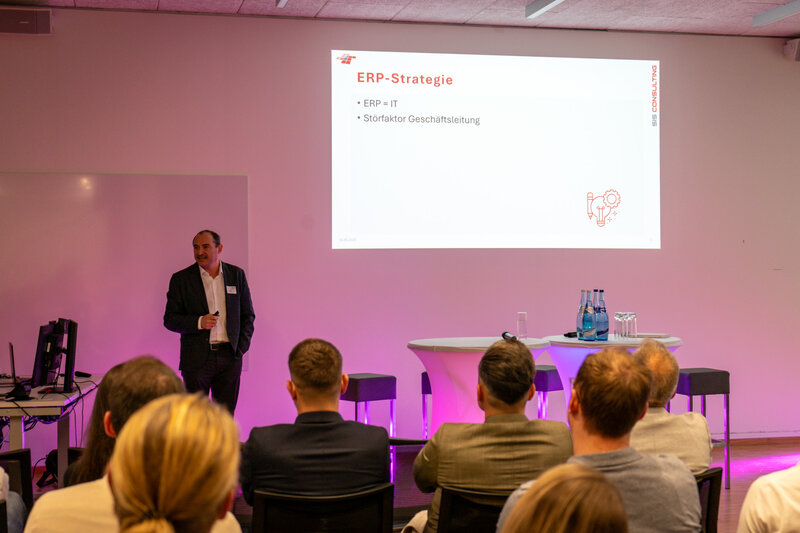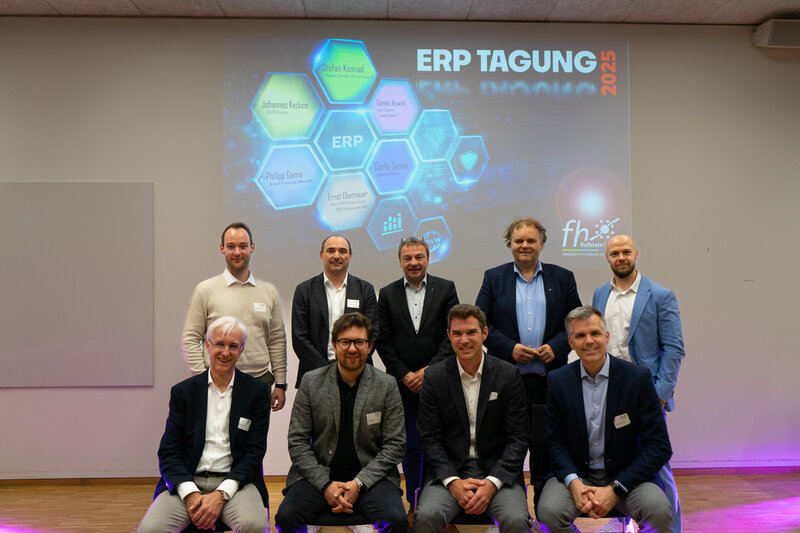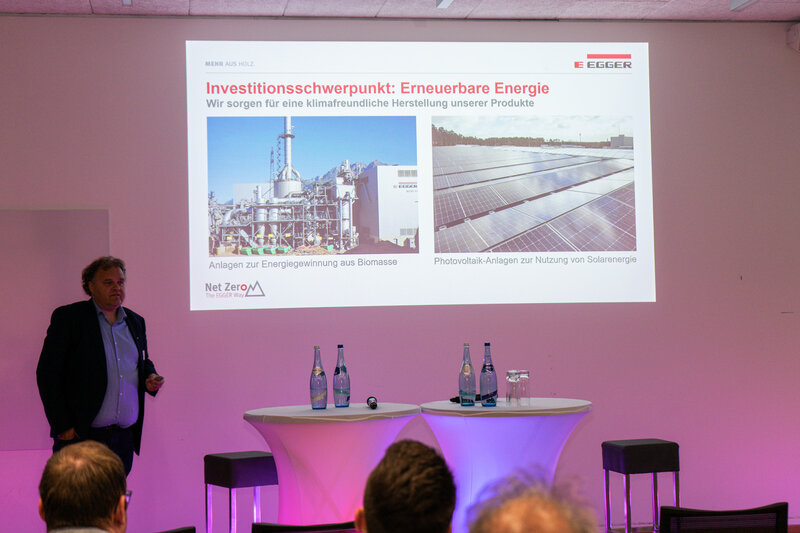ERP symposium: Focus on public cloud and AI
- 17.06.2025
- Event Review
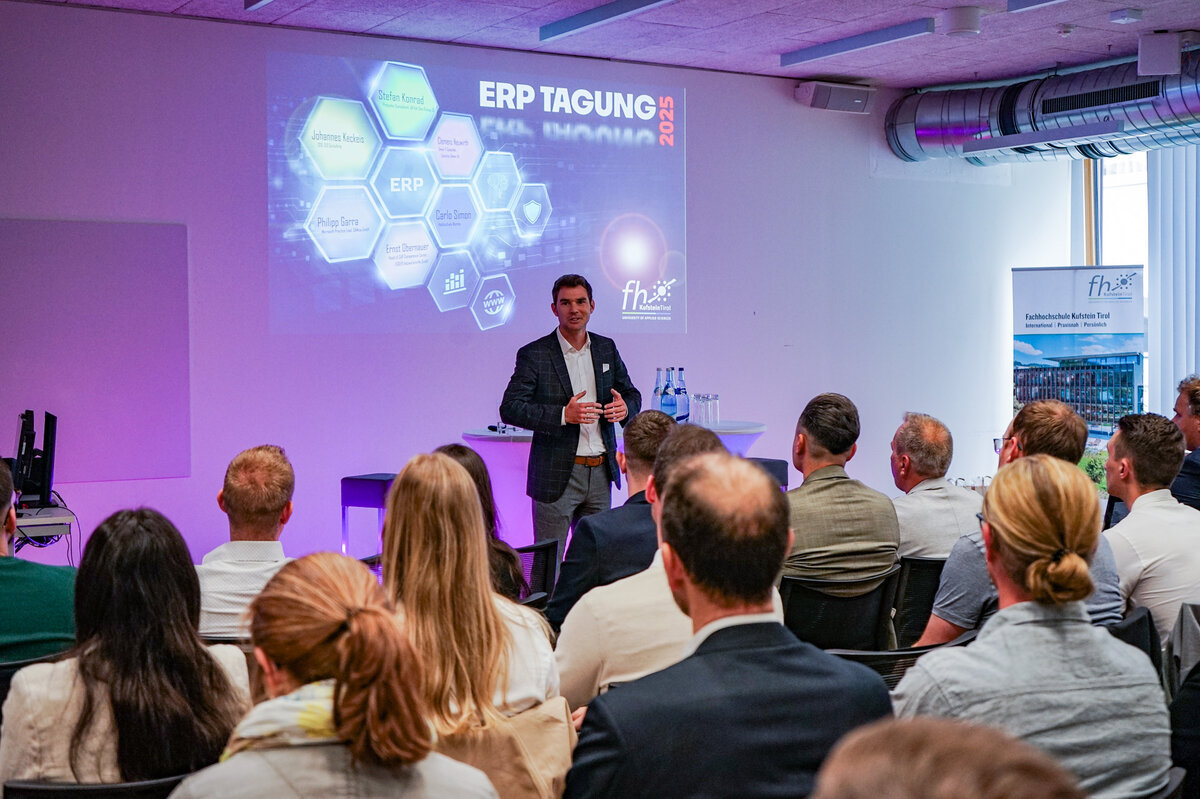
Dr. Nico Deistler, Head of the ERP Competence Center, during his presentation at the opening of the ERP symposium at the University of Applied Sciences Kufstein Tirol.
How are public cloud and AI changing the world of ERP? At the ERP conference held at the University of Applied Sciences Kufstein Tirol, experts, students, and companies discussed current trends, challenges, and practical solutions.
Cloud-based ERP solutions, AI-supported forecasts, and the role of humans in digital transformation processes: these were the main topics at the first ERP conference held on May 16 at the University of Applied Sciences Kufstein Tirol. Initiated by the university's ERP Competence Center under the direction of Dr. Nico Deistler and with the active participation of the master's degree program in ERP Systems & Business Process Management, the event offered in-depth insights into current developments and challenges in the field of enterprise resource planning.
In cooperation with partner company All for One Austria, an exciting exchange between company representatives, researchers, and students took place on campus. Practical presentations and discussions highlighted key trends in the industry, from licensing models and cloud infrastructures to intelligent forecasting systems.
PUBLIC CLOUD, LICENSING MODELS AND THE HUMAN FACTOR
The event kicked off with an exclusive fireside chat prior to the official proceedings: Lukas Kerschbaum, Vice President of Marketing, Demand & Ecosystem Management at All for One Group SE, and Stefan Konrad, MA, Presales Consultant at All for One, exchanged insights under the title Public Cloud Unplugged: Experiences from Everyday Project Work.
Stefan Konrad (All for One Group SE) then continued with his presentation “The path to the public cloud: framework parameters for a successful journey,” explaining the advantages of cloud-based ERP solutions for medium-sized businesses. Philipp Garra (SAMtoa GmbH) showed how companies can avoid pitfalls and keep costs under control in the long term through active license management.
Mag. Johannes Keckeis (SIS Consulting) addressed a key obstacle to many ERP implementations in his presentation: insufficiently trained key users. The human factor plays a decisive role in transformation projects in particular – not only in process design, but also as an active negotiating partner with ERP providers.
AI-SUPPORTED FORECASTS AND SIMULATIONS
Prof. Dr. Carlo Simon (Worms University of Applied Sciences) demonstrated the potential of AI-supported simulations in logistics in his presentation. Petri nets and neural networks could help to plan and optimize complex processes more precisely in the future. Clemens Neuwirth (Concircle Schweiz AG) also presented specific applications for AI in production planning based on use cases that have already been implemented.
The event was rounded off by Ernst Obernauer (EGGER Holzwerkstoffe GmbH), who used real business cases to illustrate the special requirements for ERP systems in an international corporate environment.
INSIGHTS, EXCHANGE AND OUTLOOK
The consistently positive feedback from participants confirmed the relevance of the topics covered. Particular emphasis was placed on the integrative approach of the conference, which gave equal voice to business, academia, and students.
The ERP Competence Center at the University of Applied Sciences Kufstein Tirol will continue to monitor developments in the ERP sector in the coming year and invite participants to engage in dialogue: The next ERP symposium is already being planned.
Links:
- ERP Systems & Business Process Management | pt
- ERP-Kompetenzzentrum | Website
Präsentationen:
- Selection and evaluation of ERP systems (*PDF) | SIS Consulting
- Public Cloud (*PDF) | Stefan Konrad
- Experience gained from daily project work (*PDF) | Lukas Kerschbaum & Stefan Konrad
- ERP costs under control (*PDF) | Philipp Garra
- Production planning with AI (*PDF)| Clemens Neuwirth
- Simulation and AI-generated prediction: planning logistics processes (*PDF) | Prof. Dr. Carlo Simon

